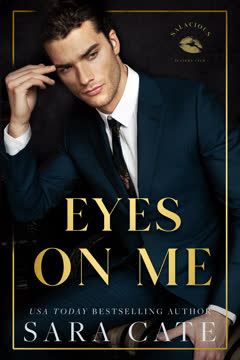Plot Summary
Roommates and Red-Light Revelations
Evelyn ("Evie") and Payton, once college roommates, now live in Chicago. Payton, beautiful and uninhibited, discovered her love for exhibitionism in Amsterdam's red-light district and chose to become a high-end escort. Evie, more reserved and practical, admires Payton's confidence but is content with her own quieter life as a graphic designer. Their friendship is close, but Evie is both fascinated and unsettled by Payton's choices, setting the stage for a story about boundaries, self-discovery, and the allure of the forbidden.
Mistakes, Money, and Moral Lines
Evie's world is upended when she makes a catastrophic mistake at work, accidentally printing a competitor's legal disclaimer on a major client's order. The cost to fix it is nearly $10,000—money she doesn't have. Her boss, Logan, is stern but helps her cover it up, expecting her to find a way to pay the printer. With no other options, Evie turns to Payton, who suggests she work one night at the exclusive club where Payton escorts. The moral line between right and wrong blurs as Evie faces the reality of selling her body to save her career.
The Club's Three Simple Rules
Evie is introduced to the club's world: anonymity, blindfolds, and a menu of "willing" acts. She's forced to confront her own desires and boundaries as she negotiates her contract, fills out her "willing list," and undergoes a physical and psychological evaluation. The club's three rules—no questions, answer honestly, and orgasms by permission—become both literal and symbolic, governing not just her night at the club but the power dynamics in her relationships.
Becoming Someone Else's Fantasy
Evie undergoes a physical transformation—new hair, waxing, and a new persona. She's prepped for her one-night-only appearance, coached by Payton and the club's staff. The night is a blur of nerves, anticipation, and self-doubt. She's blindfolded, restrained, and put on display for wealthy clients, her body and choices up for negotiation. The experience is both terrifying and exhilarating, awakening desires and insecurities she never knew she had.
Blindfolds, Boundaries, and Bosses
Evie's first client is none other than Logan, her boss, who recognized her through a club email and paid a fortune for her. The encounter is intense, boundary-pushing, and deeply erotic, with Logan enforcing the club's rules and taking control. The power dynamic between them shifts as they move from professional to profoundly personal, each discovering new facets of themselves in the process. The blindfold comes off—literally and metaphorically—forcing both to confront their feelings and the consequences of their choices.
Secrets, Sex, and Shifting Power
After the club, Evie and Logan navigate the aftermath: secrecy at work, the thrill of forbidden sex, and the challenge of trust. Their relationship is defined by rules—some playful, some serious—as they explore dominance, submission, and mutual pleasure. The lines between work and personal life blur, and both struggle with jealousy, honesty, and the fear of exposure. Their connection deepens, but so do the risks.
The Price of Permission
Sex between Evie and Logan becomes a game of power and permission, echoing the club's rules. They push each other's boundaries, exploring fantasies and vulnerabilities. The need for permission—both sexual and emotional—becomes a metaphor for trust and surrender. As their relationship intensifies, so does the danger of being discovered at work, and the emotional cost of keeping secrets mounts.
Love, Lust, and Complications
Evie's unresolved feelings for her longtime friend Blake resurface, complicating her relationship with Logan. Blake confesses his love, but Evie realizes her heart belongs to Logan. Payton, too, reveals her own emotional struggles, seeking validation through sex but longing for acceptance. The trio's friendships and loyalties are tested as they navigate jealousy, desire, and the search for genuine connection.
Friends, Lovers, and Lines Crossed
Evie, Logan, and Payton experiment with a threesome, pushing the limits of their comfort and trust. The experience is both liberating and destabilizing, forcing each to confront their insecurities and desires. For Evie, it's a moment of empowerment and self-acceptance; for Logan, a test of control and vulnerability; for Payton, a search for meaning beyond sex. The aftermath leaves them changed, their relationships forever altered.
Office Politics and Private Affairs
At work, Evie is poised for a major promotion, but office gossip and her secret relationship with Logan threaten everything. When Logan accidentally calls her by her nickname in front of colleagues, rumors explode. The company merges with a rival, and Evie's promotion is derailed—not because of her abilities, but because of her relationship with Logan. The professional and personal collide, leaving Evie devastated and questioning her choices.
Truths, Lies, and Letting Go
Evie discovers Logan lied about the cost of her mistake, manipulating her into the club. She's hurt and angry, feeling betrayed by the man she loves. Logan, too, struggles with honesty, meeting with his ex April for closure and nearly quitting his job to give Evie the promotion she deserves. Both must confront the consequences of their actions, the limits of forgiveness, and the reality that love is messy, imperfect, and sometimes painful.
Breaking, Healing, and New Beginnings
Evie demands space to process her hurt, and Logan, for the first time, must wait and compromise. Both reflect on their mistakes and what they truly want. With the help of friends and family, they find their way back to each other, stronger and more honest. Logan proposes in a public, heartfelt gesture, and Evie accepts, choosing love and vulnerability over fear and pride.
The Proposal and the Promise
Logan's marathon proposal is a culmination of their journey: public, vulnerable, and full of love. Evie says yes, and they begin planning a future together. The past—mistakes, secrets, and pain—is acknowledged but no longer defines them. Their relationship is built on new rules: honesty, trust, and mutual respect. The promise is not of perfection, but of partnership.
Aftermaths, Apologies, and Acceptance
Evie and Logan settle into life together, navigating the challenges of cohabitation, work, and lingering insecurities. Payton faces her own reckoning, losing her job at the club and confronting the emptiness of her choices. The friends support each other, learning that acceptance and forgiveness are ongoing processes. The story ends with the promise of new beginnings, hard lessons learned, and the enduring power of love.
Payton's Reckoning
Payton's journey comes full circle as she's fired from the club, forced to confront the reality that sex and money can't fill the void inside her. Her friendship with Evie is tested but ultimately endures, and she begins to seek meaning beyond her old life. The story closes with the hint of new adventures and the understanding that everyone is still learning, still growing, and still searching for happiness.
Characters
Evelyn "Evie" Russell
Evie is a talented, responsible graphic designer whose life is upended by a costly mistake at work. Her journey is one of self-discovery, as she's forced to confront her own desires, boundaries, and capacity for risk. Initially reserved and cautious, Evie is drawn into a world of sexual exploration and power dynamics, learning to embrace vulnerability and assert her needs. Her relationships—with Payton, Logan, and Blake—reveal her longing for acceptance, love, and control over her own narrative. Evie's arc is about moving from fear to agency, from shame to self-acceptance.
Logan Stone
Logan is Evie's boss, a brilliant but exacting manager with a reputation for being cold and unyielding. Beneath his controlled exterior lies a man hungry for connection, haunted by a failed long-term relationship and a fear of compromise. Logan's attraction to Evie is both physical and emotional, and he's drawn to the power dynamics they explore together. His need for control is both a strength and a weakness, leading him to manipulate situations but also to surrender, ultimately, to love. Logan's development is about learning to trust, to let go, and to accept imperfection in himself and others.
Payton
Payton is Evie's best friend and former roommate, a high-class escort who embraces her sexuality with confidence and flair. Outwardly bold and unapologetic, Payton is secretly searching for validation and meaning beyond sex and money. Her encouragement of Evie's journey is both supportive and self-serving, as she seeks to test her own boundaries and find someone who understands her. Payton's arc is about confronting the emptiness beneath her bravado, seeking real connection, and learning that vulnerability is not weakness.
Blake
Blake is Evie's longtime friend and unrequited love, a safe harbor who represents the road not taken. His confession of love complicates Evie's feelings, forcing her to choose between comfort and passion. Blake's own journey is about growing up, accepting responsibility, and letting go of the past. He serves as a mirror for Evie, reflecting her fears and desires, and ultimately helps her realize what she truly wants.
Joseph
Joseph is the manager of the club, a calm and calculating figure who assesses and manages the women who work there. He represents the rules and boundaries of the club's world, enforcing consent and safety while also commodifying desire. Joseph's interactions with Evie and Payton highlight the transactional nature of sex work and the complexities of power and agency.
Tara
Tara is a fellow escort at the club, responsible for "selling" Evie to clients and guiding her through her first night. She is both supportive and competitive, embodying the duality of camaraderie and rivalry among the women. Tara's presence during Evie's encounter with Logan adds layers of performance, observation, and complicity to the story's exploration of desire.
Kathleen
Kathleen is a senior designer at Evie's firm, a competent and driven woman who becomes Evie's main rival for promotion. Her disappointment and resentment when passed over for advancement reflect the broader themes of workplace politics, gender, and the cost of secrecy. Kathleen's role is a reminder that personal choices have professional consequences, and that ambition can be both empowering and isolating.
April
April is Logan's former partner of twelve years, a symbol of his past and his fear of repeating old mistakes. Her reappearance forces Logan to confront unresolved feelings and the reasons for their breakup. April's presence is a catalyst for honesty and closure, allowing Logan to move forward with Evie.
Jamie
Jamie is a coworker who embodies the office rumor mill, always eager to uncover secrets and spread news. Her nosiness and lack of boundaries create tension and humor, highlighting the challenges of maintaining privacy in a public world.
Nick
Nick is Logan's younger brother, a source of support and perspective. His own experiences with love and loss provide a counterpoint to Logan's journey, and his role in the proposal scene underscores the importance of family and community in healing and growth.
Plot Devices
The Club and Its Rules
The club is both a literal and symbolic space where characters confront their desires, boundaries, and fears. Its three rules—no questions, answer honestly, and permission for orgasms—structure the narrative's exploration of power, consent, and vulnerability. The club's anonymity and performance create a safe space for risk-taking, but also expose the characters' deepest insecurities. The rules become a metaphor for the negotiations inherent in all relationships, sexual or otherwise.
Blindfolds and Anonymity
Blindfolds are used to heighten sensation, enforce vulnerability, and create a sense of safety through anonymity. They allow characters to explore desires they might otherwise repress, and serve as a device for dramatic reveals—most notably when Evie discovers her client is Logan. The removal of the blindfold is a turning point, symbolizing the transition from fantasy to reality, from secrecy to honesty.
Power Dynamics and Permission
The interplay of dominance and submission, control and surrender, is central to the story's erotic and emotional arcs. Permission—sexual, emotional, professional—is both a game and a necessity, requiring trust and communication. The shifting power dynamics between Evie and Logan mirror their struggles with vulnerability, ambition, and love. The need for permission becomes a metaphor for the risks and rewards of intimacy.
Professional Stakes and Office Politics
The workplace is a battleground for ambition, recognition, and the consequences of personal choices. The threat of exposure, the impact of rumors, and the tension between public and private selves drive much of the plot's conflict. The professional fallout from Evie and Logan's relationship forces them to confront the limits of compromise and the price of honesty.
Foreshadowing and Parallelism
The narrative uses foreshadowing—Evie's initial envy of Payton's confidence, Logan's warnings about compromise, the club's rules—to set up later developments. Characters' journeys mirror and contrast each other: Evie and Payton's explorations of sex and self-worth, Logan and April's failed relationship versus his new one with Evie, the club's transactional sex versus genuine intimacy. These parallels deepen the story's themes and emotional resonance.
Analysis
Three Simple Rules is a bold, provocative exploration of power, vulnerability, and the search for authentic connection in a world obsessed with performance and control. Through the lens of erotic romance, Nikki Sloane interrogates the boundaries between fantasy and reality, consent and coercion, love and lust. The novel's central metaphor—the club's rules—serves as a framework for examining how we negotiate desire, trust, and agency in all relationships, not just sexual ones. Evie's journey from self-doubt to self-acceptance, Logan's struggle to balance control with surrender, and Payton's quest for meaning beyond sex all reflect the universal human longing for acceptance and belonging. The story's frank depiction of sex, its willingness to confront taboo, and its nuanced portrayal of female desire make it both a steamy read and a thoughtful meditation on the risks and rewards of intimacy. Ultimately, Three Simple Rules argues that love is not about perfection or safety, but about the courage to be seen, to be honest, and to choose each other—again and again, despite the mess.
Last updated:
FAQ
Synopsis & Basic Details
What is Three Simple Rules about?
- A Costly Mistake: Evelyn "Evie" Russell, a diligent graphic designer, faces financial ruin after a critical error at work, forcing her to seek an unconventional solution to cover a $9,600 debt.
- A Forbidden World: Her best friend, Payton, a high-end escort, introduces Evie to an exclusive, anonymous club where women fulfill clients' desires for money, leading Evie to consider a one-night contract.
- Unforeseen Connections: What begins as a desperate measure for Evie spirals into a complex, intense relationship with her demanding boss, Logan Stone, blurring the lines between professional boundaries, personal desires, and the very nature of control and surrender.
Why should I read Three Simple Rules?
- Deep Psychological Exploration: The novel delves into the psychological complexities of its characters, particularly Evie's journey from reserved caution to embracing her sexuality and challenging her own inhibitions, offering a nuanced look at self-discovery.
- Intense Power Dynamics: It masterfully explores themes of control, submission, and consent, both literally within the club's "rules" and metaphorically in the evolving relationship between Evie and Logan, making for a compelling and thought-provoking read.
- Steamy, Unapologetic Romance: Beyond its erotic elements, the story offers a raw and honest portrayal of a relationship built on unconventional foundations, filled with unexpected turns, emotional depth, and undeniable chemistry that keeps readers captivated.
What is the background of Three Simple Rules?
- Contemporary Chicago Setting: The story is set in modern-day Chicago, utilizing its urban landscape, from bustling downtown offices to trendy bars and quiet apartments, to ground the characters' experiences in a relatable, vibrant environment.
- High-Stakes Corporate Culture: Evie's graphic design agency provides a backdrop of professional ambition and intense competition, where a single mistake can have devastating financial and career consequences, highlighting the pressures faced by young professionals.
- Exploration of Sex Work Nuances: The novel delves into the world of high-end escorting, not as a desperate last resort, but as a chosen profession for some, exploring themes of agency, safety, and the emotional toll or liberation found within such a lifestyle.
What are the most memorable quotes in Three Simple Rules?
- "I'm providing a service. The ugly and fat guys can fuck a girl who looks like me.": This early quote from Payton (Chapter 1) immediately establishes her pragmatic, uninhibited approach to sex work, setting a provocative tone and foreshadowing Evie's own journey into a world where bodies are commodified.
- "I have rules. You don't get to ask questions, no matter what. Do you understand? ... The last rule is your body belongs to me, so that means your orgasms are mine. You don't come without my permission.": Logan's declaration of his "three simple rules" (Chapter 4) becomes the central motif of the novel, defining the power dynamics in their sexual encounters and later, metaphorically, in their entire relationship, highlighting themes of control and surrender.
- "I tried not to fall in love with you, but you made that impossible. I can't rein this back in. And I don't want to.": Logan's raw confession (Chapter 25) marks a pivotal emotional turning point, revealing his deep vulnerability and commitment to Evie, despite his initial resistance to compromise and relationships, underscoring the transformative power of their connection.
What writing style, narrative choices, and literary techniques does Nikki Sloane use?
- First-Person, Intimate POV: The story is told entirely from Evie's first-person perspective, immersing the reader directly into her internal thoughts, anxieties, and burgeoning desires, creating a deeply personal and often raw narrative experience.
- Direct and Unflinching Language: Sloane employs a straightforward, unvarnished prose, particularly in the erotic scenes, which contributes to the novel's bold and unapologetic tone, ensuring the reader feels the intensity and vulnerability of Evie's experiences.
- Symbolic Rule-Breaking: The recurring motif of "rules" (both literal and metaphorical) serves as a powerful literary device, with characters constantly pushing, breaking, and redefining them, symbolizing their journey of self-discovery, challenging societal norms, and forging their own path in love and life.
Hidden Details & Subtle Connections
What are some minor details that add significant meaning?
- Logan's Mother's Key: Susan's unexpected appearance with a key to Logan's apartment (Chapter 8) subtly highlights his deep-seated need for control and privacy, as he'd given it only for "emergencies," yet his mother's casual use of it reveals a boundary he struggles to maintain, even with family.
- The "Player's" Vodka Ad: The specific product Evie's mistake is tied to, "Player's" vodka (Chapter 1), is a subtle nod to the themes of manipulation and gamesmanship that permeate the story, particularly in Logan's initial deception and the power dynamics of the club.
- The Club's Soundproofing: The detailed description of the club's soundproofed walls and ceiling (Chapter 4) not only establishes the setting's practical function but also symbolizes the isolation and anonymity inherent in the transactions, creating a private bubble where inhibitions can be shed without external judgment.
What are some subtle foreshadowing and callbacks?
- Payton's "Emotional Goal": Early in Chapter 1, Evie wonders if Payton's career choice is driven by an "emotional one she was desperate to satisfy," subtly foreshadowing Payton's later confession that she needed Evie's experience to validate her own feelings about her sexuality and enjoyment of sex.
- Logan's "Visual Creatures" Comment: Logan's seemingly casual remark, "We're both visual creatures" (Chapter 5), just before removing Evie's blindfold, is a callback to his earlier observation about her design work being "eye-catching and stunning" (Chapter 1), subtly linking his professional appreciation for her visual talent to his personal desire for her.
- The "Three Hard Lessons" Epigraph: The book's epigraph, "Don't tease him. Don't give him boundaries. And don't think you get a choice in who you love," subtly foreshadows the core conflicts and lessons Evie and Logan will learn, particularly Logan's struggle with boundaries and Evie's eventual surrender to love.
What are some unexpected character connections?
- Tara's Voyeuristic Pleasure: Tara, the sales assistant at the club, is not just a professional facilitator but also a participant in the erotic experience, openly expressing her turn-on while watching Logan and Evie (Chapter 5), revealing a shared, unexpected layer of desire that transcends their professional roles.
- Nick's Role in the Proposal: Logan's brother, Nick, is revealed to have been complicit in the proposal, carrying the ring and providing the "Snuggles" sign (Chapter 25), showcasing a deeper, playful bond between the brothers and Nick's supportive influence on Logan's personal life.
- Logan's Past with Office Colleagues: The revelation that Logan has slept with other women in the office (Rachel, Scarlet, Chloe – Chapter 24) creates an unexpected connection to Evie's professional environment, highlighting the blurred lines and potential for gossip that she later faces, making his insistence on secrecy more understandable.
Who are the most significant supporting characters?
- Joseph, the Club's Architect: Beyond being a "pimp," Joseph is the architect of the club's unique environment and rules, embodying the transactional yet surprisingly consensual nature of the sex work. His calm demeanor and focus on "comfort" and "security" (Chapter 2) are crucial in establishing the club as a controlled, almost clinical, space for taboo desires.
- Tara, the Erotic Facilitator: Tara's role as Evie's "sales assistant" and guide through her first night is pivotal. Her ability to "read" clients and negotiate prices (Chapter 3), combined with her own evident arousal during Evie's session (Chapter 4), makes her more than a minor character; she's a key enabler of Evie's sexual awakening and a mirror for unspoken desires.
- Nick, the Grounding Force: Logan's younger brother, Nick, serves as a vital grounding force for Logan, offering a contrast to Logan's intense, controlled personality. His easygoing nature, support during the marathon, and playful involvement in the proposal (Chapter 25) highlight the importance of family and genuine connection in Logan's life, subtly influencing his journey towards vulnerability.
Psychological, Emotional, & Relational Analysis
What are some unspoken motivations of the characters?
- Payton's Quest for Validation: Payton's insistence that Evie try escorting, and her subsequent relief when Evie admits to enjoying it (Chapter 6), reveals her unspoken motivation: a deep-seated need for validation that her own choices and enjoyment of sex are "normal" and not "fucked up," stemming from her strict Catholic upbringing.
- Logan's Fear of Compromise: Logan's reluctance to commit to a relationship and his initial "uncompromising" stance (Chapter 9) are deeply rooted in his twelve-year relationship with April, which ended with an ultimatum. His unspoken motivation is a fear of repeating past failures and losing control, making his eventual surrender to Evie's love all the more significant.
- Evie's Desire for Control (and its Loss): While initially driven by financial desperation, Evie's decision to embrace the club's rules and later Logan's dominance stems from an unspoken desire to relinquish control in certain aspects of her life, finding a liberating thrill in surrendering to intense experiences, which contrasts with her professional drive for perfection.
What psychological complexities do the characters exhibit?
- Evie's Shame-Pleasure Paradox: Evie grapples with the psychological complexity of experiencing intense pleasure and arousal in situations that societal norms would deem shameful or degrading (e.g., the initial blowjob test, being "sold" at the club). Her internal monologue often reflects this conflict, where her body's reactions contradict her initial moral objections, leading to a profound self-acceptance.
- Logan's Controlled Vulnerability: Logan presents as a highly controlled, almost rigid individual, but his psychological complexity lies in his hidden vulnerability and deep emotional needs. His "education" lectures (Chapter 1) are a defense mechanism, and his willingness to spend a fortune on Evie, then later confess his long-standing attraction, reveals a man struggling to reconcile his need for control with his overwhelming desire for connection.
- Payton's Performative Confidence: Payton's outward confidence and unapologetic embrace of her profession mask a deeper psychological need for external validation. Her "performance" of being a "high-class whore" (Chapter 1) is a coping mechanism, and her emotional breakdown when fired (Chapter 26) reveals the fragility beneath her bravado, highlighting the psychological toll of a life built on external perception.
What are the major emotional turning points?
- Evie's "Willing List" Expansion: A major emotional turning point occurs when Evie, reeling from Blake's perceived betrayal, defiantly checks three more boxes on her "willing list" (Chapter 3). This act, driven by anger and a desire for self-assertion, marks her shift from reluctant participant to an active, albeit emotionally charged, embrace of her new reality.
- Logan's Confession of Love in the Office: Logan's public declaration of love for Evie in the office (Chapter 24), despite the professional consequences, is a monumental emotional turning point. It shatters his carefully constructed facade of control and professionalism, revealing the depth of his feelings and his willingness to sacrifice for their relationship, forcing Evie to confront her own emotions.
- Logan's Marathon Proposal: The marathon proposal (Chapter 25) serves as a powerful emotional climax, symbolizing Logan's complete surrender to love and his willingness to be vulnerable in a public, grand gesture. For Evie, it's the ultimate validation of his commitment, transforming their unconventional beginning into a promise of a future built on honesty and shared vulnerability.
How do relationship dynamics evolve?
- From Transactional to Intimate: The core relationship dynamic between Evie and Logan evolves from a purely transactional one (client/escort) to a deeply intimate and committed partnership. Initially defined by the club's rules of control and permission, their dynamic gradually incorporates mutual vulnerability, emotional honesty, and shared decision-making, moving beyond the confines of their initial arrangement.
- Shifting Power and Mutual Surrender: While Logan initially holds significant power (as boss, as client), the relationship dynamics evolve into a more balanced interplay of dominance and submission. Evie learns to assert her own desires and boundaries, while Logan learns to surrender control and embrace vulnerability, demonstrating that true intimacy involves a fluid exchange of power rather than rigid adherence to roles.
- Friendship Tested and Transformed: Evie's friendships with Payton and Blake undergo significant evolution. Payton's initial self-serving encouragement transforms into genuine support and shared vulnerability, while Blake's unrequited love forces Evie to confront her true feelings, ultimately solidifying her commitment to Logan and redefining her platonic relationships.
Interpretation & Debate
Which parts of the story remain ambiguous or open-ended?
- The Full Extent of Logan's Past: While April's story provides insight into Logan's fear of compromise, the full details of his "post-breakup phase" and his relationships with other office women (Chapter 24) remain somewhat ambiguous. This leaves room for interpretation regarding the depth of his past emotional entanglements and how truly "new" his approach to Evie is.
- The Long-Term Impact of Office Gossip: The novel concludes with Evie and Logan's engagement, but the immediate professional fallout from their relationship and the pervasive office gossip (Chapter 24) are left somewhat open-ended. Readers might debate how easily they can navigate their careers and reputations in the long run, especially with Kathleen's promotion.
- Payton's Future Beyond the Club: Payton's story ends with her being fired from the club (Chapter 26) and confronting her emotional emptiness. While she acknowledges her need for change, the specific path she will take to find genuine fulfillment and connection remains open, inviting readers to imagine her future beyond sex work.
What are some debatable, controversial scenes or moments in Three Simple Rules?
- Joseph's "Test" Blowjob: The scene where Joseph demands Evie perform oral sex as a "test" of her comfort level (Chapter 2) is highly debatable. While presented as a club "rule" to ensure client satisfaction, it raises questions about consent under duress, the power dynamics inherent in sex work, and whether Evie's compliance truly reflects her agency or desperation.
- Logan's Deception about the Debt: Logan's deliberate lie about the true cost of Evie's mistake, inflating it to $9,600 to ensure she'd go to the club (Chapter 20), is a controversial moment. It sparks debate about whether his manipulative actions, even if driven by desire for her, are justifiable or fundamentally undermine the trust in their relationship.
- The Threesome with Payton: The consensual threesome involving Evie, Logan, and Payton (Chapters 21-23) is a highly controversial scene. It challenges traditional relationship boundaries and explores themes of voyeurism, shared pleasure, and the complexities of friendship and sexual intimacy, prompting readers to consider their own comfort levels with such arrangements.
Three Simple Rules Ending Explained: How It Ends & What It Means
- A Public, Vulnerable Proposal: The novel culminates with Logan proposing to Evie at the Chicago Marathon finish line (Chapter 25), a grand, public gesture that contrasts sharply with the secrecy and hidden nature of their initial encounters. This signifies Logan's complete emotional surrender and his willingness to be vulnerable, breaking his own "rules" of privacy and control.
- Redefining "Rules" and Compromise: Evie accepts, and the ending implies that their relationship will be built on a new set of "rules" – not Logan's initial, rigid ones, but a foundation of honesty, mutual trust, and a willingness to compromise. Logan's admission of love and his actions (like buying the ring after Evie's confession) demonstrate his growth beyond his past fears of commitment and failure.
- Love Forged in Unconventionality: The ending of Three Simple Rules means that their love, born from a desperate mistake and forged in the crucible of taboo experiences, is strong and authentic. It suggests that true connection can be found in unexpected places and that embracing one's desires, even the "naughty" ones, can lead to profound happiness and a lasting partnership, despite societal judgments or professional challenges.
Review Summary
Three Simple Rules is a steamy erotic romance that many readers found extremely hot and addictive. The story follows Evelyn, who sells herself for one night to pay off a work mistake, only to discover her buyer is her boss Logan. Their relationship develops through intense sexual encounters, including some threesome scenes. While most praised the chemistry and sex scenes, some readers were uncomfortable with the sharing aspects. Overall, it's considered a well-written, sexy read that pushes boundaries, though opinions varied on certain plot elements.
Similar Books
Download PDF
Download EPUB
.epub digital book format is ideal for reading ebooks on phones, tablets, and e-readers.
















